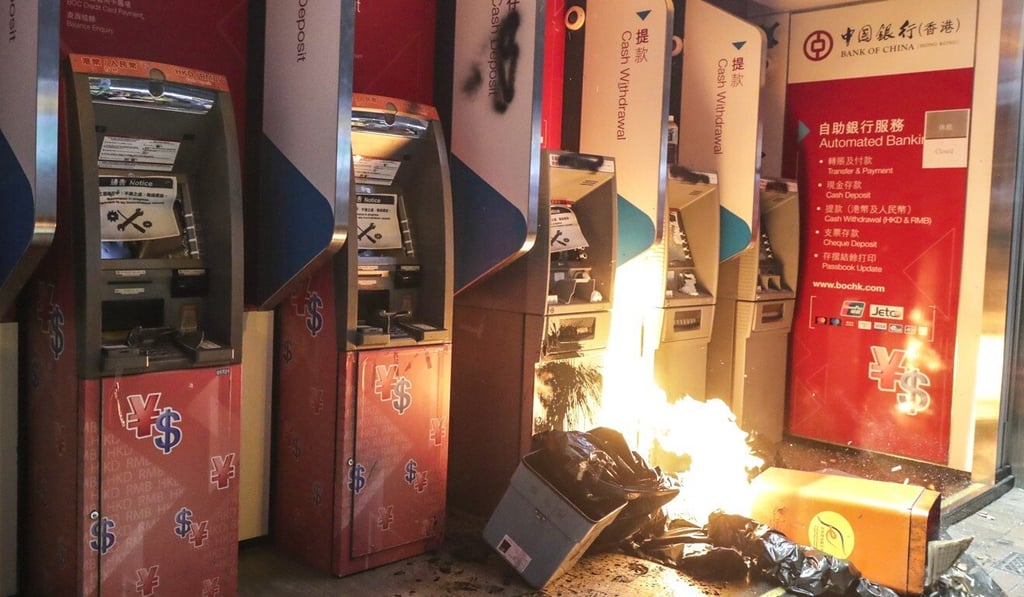Hong Kong restaurants branded ‘yellow’ if they support protests, ‘blue’ if they don’t
- Establishments risk attack, loss of business, harassment once they reveal political stance
- Protest supporters flock to ‘yellow-ribbon’ eateries, shun ‘blue-ribbon’ restaurants

Yellow sticky notes outside the Lung Mun Cafe in Hung Hom say: “Blue-ribbons stay away.”
A team of workers is changing a glass panel of the restaurant, which was vandalised on October 24 by five masked men who smashed windows, computers, closed-circuit television cameras and furniture.
With anti-government protests in their fifth month, the cha chaan teng-style restaurant with char siu (barbecued pork), spaghetti and pork chops on its menu has come to be known as a “yellow-ribbon” establishment.
That means it supports the protest movement. “Blue-ribbon”, on the other hand, refers to those places deemed to support the government and the police.

Student Ng, 19, who asked to be identified by his surname only, was at Lung Mun Cafe for lunch on Tuesday. He says he makes it a point these days to check online to see which restaurants are labelled yellow, before he sets out for a meal.
“I want to support these restaurants,” he says. “It may not contribute a lot to their business or the whole protest campaign, but it’s a way I can support them.”